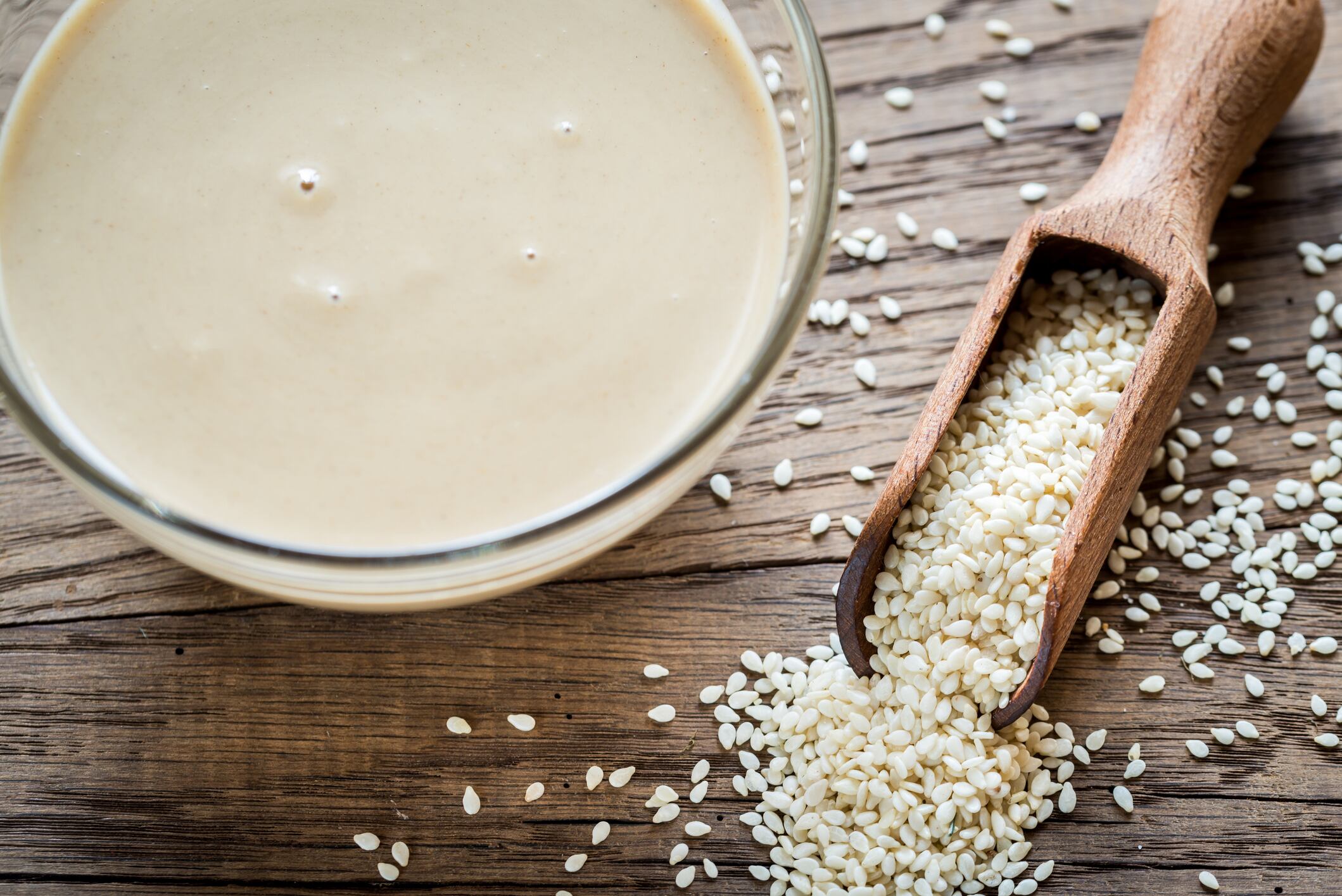Tahini is a basic paste made from sesame seeds and used in Middle Eastern and Mediterranean cuisine. It contains mono- and polyunsaturated fatty acids and nutrients like thiamine, magnesium, phosphorous, iron, and calcium.
Soom was founded in 2013 by the Zitelman sisters, Shelby, Amy and Jackie. The idea started two years earlier when eldest sister Shelby was visiting middle sister Jackie in Israel. This was followed by 18 months of market research, and then a meeting with chef and restaurateur Michael Solomonov, winner of multiple James Beard awards and co-owner of Zahav, an Israeli restaurant in Philadelphia, who told the sisters that there was not a consistently good tahini available. Solomonov would go on to be Soom’s first big customer.
“We’ve doubled our sales every year, and we’re really proud of that,” youngest sister Amy Zitelman told FoodNavigator-USA. “We’re right on trend with Mediterranean food, it’s healthy and easy and versatile.”
Food service vs retail
The tahini landscape is getting more crowded, which Zitelman welcomes. “It’s competition, yes, but it would take a long time to educate consumers if we were the only company out there. We’re constantly reminded how much more room there is for this product.”
The food service side of the business represents 65% of sales, said Zitelman, but the retail side is growing and e-commerce, particularly Amazon, is “amazing with a really high repeat purchase rate and great reviews,” she said. A 16oz product costs $12.95 and contains 16 servings.
“We’re fortunate that people are learning about tahini from chefs who they really admire, and they’re seeing tahini on menus, and that is now translating organically into retail.”

In brick and mortar, the products are available in between 150 and 200 stores across the company, from smaller independent stores like MOM’s Organic Market in Virginia, Pennsylvania, and New Jersey, to bigger chains like Whole Foods Market in the mid-Atlantic region. In 2017, the company has sold over 500,000 pounds of tahini. They barely sold 20,000 in 2013.
“The aim is to make tahini a pantry staple in food service and at home,” said Zitelman.
The company currently offers two products: A premium tahini and chocolate sesame spread. The tahini is “knocking it out of the park”, she said, and represents 90% of sales. The chocolate spread needs some education, said Zitelman, because people are not currently looking for substitutes to chocolate spreads until they try it.
New products
While the first products were based on sesame (the word Soom means sesame in Hebrew), the next product coming out from the company is Silan, which is date molasses. The product is aimed at the food service space and is launching with limited distribution in markets like Portland, DC, Philadelphia and Boston.
The company used to have a dip product sold at retail, but they pulled it in 2015. “We moved a little too quickly, and we were perhaps distracted by the potential in the market,” admits Zitelman. “Also, success at retail demands time and money to get products on the shelf, and it was going into refrigerators next to hummus, but it wasn’t hummus, and consumer awareness wasn’t there.” The sisters focused on food service, which supported retail demand.
“We’ve now found the right balance between food service and retail, and the country seems to understand tahini better,” she said.
Sourcing

Soom Foods uses single-sourced Ethiopian White Humera sesame seeds in its products. While Zitelman acknowledged that some people may view a single source as a risk, she noted that other sesame seed sources cannot match the Ethiopian seeds. “You can get White Humera seeds from India but they do not have the same flavor profile and consistency,” she said. The combination of altitude, climate and fertile soil make ideal conditions for sesame seed production, similar to coffee (Ethiopia is the largest African producer of Arabica coffee).
“We believe that tahini can be as successful as almond butter. It could even replace almond butter because sesame can grow in arid conditions. It doesn’t require the huge amounts of water that almonds do,” she said.
All of this success has been achieved without any fundraising, but that may change in the future. “To grow retail correctly we would be looking for external funding, and that’s something we’ll explore in 2018.”


